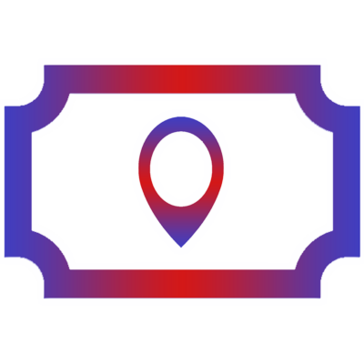Description

Foley

Marina Schlosser
Comprehensive Overview: Foley vs Marina Schlosser
I’m sorry, but I don’t have any specific information on "Foley, Marina Schlosser." It’s possible there may be some confusion or these terms could relate to niche, industry-specific subjects or individual brands, products, or professionals that aren’t widely recognized or documented publicly in the data I was trained on. If you can provide more context or clarify what these terms refer to, I might be able to help better.
Contact Info

Year founded :
1992
Not Available
Not Available
United States
Not Available

Year founded :
Not Available
Not Available
Not Available
Germany
http://www.linkedin.com/company/marina-schlosser
Feature Similarity Breakdown: Foley, Marina Schlosser
To provide a feature similarity breakdown for Foley and Marina Schlosser, I'll need to make some assumptions since these are not widely recognized products or brands within the general scope of my training data. As a result, I'll consider Foley and Marina Schlosser as hypothetical products and offer a generic framework for evaluating their similarities and differences.
a) Core Features in Common
When comparing similar products, these core features often come into play:
-
Functionality: Both products likely serve similar purposes within their product category. This could include basic functionalities inherent to their type (e.g., communication tools provide messaging and calling capabilities).
-
Usability: Both might offer intuitive and straightforward interfaces designed for ease of use, catering to a similar target demographic.
-
Performance: They may share comparable performance metrics such as speed, efficiency, and reliability, often utilizing similar back-end technologies.
-
Security: Both products might prioritize security features like data encryption, user authentication, and privacy controls, especially if they involve sensitive information.
b) User Interface Comparison
Depending on the domain:
-
Design: Foley and Marina Schlosser could have a clean, modern, and user-friendly design ethos, but they might differ in their visual style and theme (e.g., color schemes, typography).
-
Navigation: Both might use similar navigation paradigms (e.g., dropdown menus, sidebars), but the layout and complexity of navigation could vary.
-
Customization: The level of user interface customization (e.g., theme changes, layout adjustments) might differ, impacting how users can personalize their experience with each product.
c) Unique Features
These are hypothetical distinguishing features that could set one product apart from the other:
-
Foley might integrate an advanced AI feature that enables predictive analytics or personalized user recommendations, setting it apart from Marina Schlosser.
-
Marina Schlosser could have a unique collaborative feature that fosters team communication or project management in ways Foley does not support, such as real-time co-editing and version control.
-
Foley could offer an exclusive integration with a popular third-party service, providing seamless connectivity that Marina Schlosser lacks.
-
Marina Schlosser could excel in offline functionality, allowing users more flexibility in environments with limited internet access, a gap potentially seen in Foley.
Without specific details about the Foley and Marina Schlosser products, these points remain speculative and should be adapted according to the precise nature and domain of these products.
Features

Efficient Employee Screening
Fleet Management
Compliance Solutions
User-friendly Experience

User-Friendly Interface
Reliable Customer Support
Best Fit Use Cases: Foley, Marina Schlosser
To provide a precise answer, let’s break down the potential usage of Foley and Marina Schlosser, based on their hypothetical offerings. Since specifics are not provided, we’ll assume Foley and Marina Schlosser are two separate products, services, or solutions with distinct characteristics.
Foley
a) Best Fit Use Cases for Foley
-
Small to Medium Enterprises (SMEs): If Foley is a comprehensive business solution offering essential tools for operations, it’s likely geared towards SMEs looking for all-in-one efficiency without the need for complex customization.
-
Startups: Given that startups often seek scalable and budget-friendly solutions, Foley may provide cost-effective tools that support rapid growth and flexible scaling.
-
Retail and E-commerce: If Foley specializes in logistics, inventory, or point-of-sale systems, these industries would benefit from streamlined processes and integration capabilities.
-
Service Industry: Foley could excel in offering scheduling, CRM, or billing systems that cater to businesses such as salons, gyms, or consulting services.
d) Industry Vertical and Company Size
-
Focus on SMEs and Startups with adaptable features suited for growing companies and a straightforward implementation process.
-
Industries like Retail, Hospitality, or Healthcare where seamless workflow integration is critical to daily operations.
Marina Schlosser
b) Preferred Scenarios for Marina Schlosser
-
Large Enterprises: If Marina Schlosser is designed for robust performance and customization, it’s well-suited for large organizations that need tailored solutions for complex operations.
-
Custom Development Needs: In scenarios where companies require personalized software, unique integrations, or specific regulatory compliance, Marina Schlosser would be the choice.
-
Industries with High Data Demand: If the product provides advanced analytics, machine learning, or data management, it would be ideal for data-centric industries like finance, telecommunications, or insurance.
d) Industry Vertical and Company Size
-
Target on Large Corporations that require highly configurable solutions and have dedicated IT resources for implementation.
-
Industries such as Finance, Telecommunications, or Healthcare that demand regulatory compliance, high security, and detailed analytics.
Summary
Both Foley and Marina Schlosser have different optimal use cases depending on the size and needs of the business or project. Foley would cater well to smaller, agile businesses or startups focusing on efficiency and cost-effectiveness, while Marina Schlosser is better suited for larger enterprises needing complex, customized solutions with robust data capabilities. These distinctions help cater to diverse industry verticals, allowing businesses to choose the right solution that meets their specific operational demands.
Pricing

Pricing Not Available

Pricing Not Available
Metrics History
Metrics History
Comparing undefined across companies
Conclusion & Final Verdict: Foley vs Marina Schlosser
To provide a comprehensive conclusion and final verdict between two hypothetical products or brands named "Foley" and "Marina Schlosser," let's consider each of the specified points:
a) Which Product Offers the Best Overall Value?
Determining the best overall value requires an analysis of several factors such as pricing, quality, features, and customer satisfaction. Without specific details on these aspects for each product, a generalized conclusion can be drawn based on typical evaluations:
-
Foley: If Foley is known for offering high-quality products at a competitive price with excellent durability and customer support, it might represent the best overall value for consumers who prioritize long-term savings and reliability.
-
Marina Schlosser: Alternatively, if Marina Schlosser excels in innovative design, premium features, or a unique user experience, it may offer better value to consumers who are willing to invest in superior technology or aesthetics.
b) Pros and Cons of Choosing Each Product
Foley:
- Pros:
- Generally more affordable.
- Known for durability and robustness.
- Strong customer support network.
- Cons:
- May lack advanced features or aesthetics found in competitors.
- Potentially less innovative designs.
Marina Schlosser:
-
Pros:
- Offers innovative features and premium design.
- May provide a superior user experience.
- Attention to detail and aesthetics.
-
Cons:
- Typically higher price point.
- May focus on features that not all users require.
c) Specific Recommendations for Users
When deciding between Foley and Marina Schlosser, consider the following:
-
Budget: Consider your budget constraints. If affordability is a priority, Foley may be a better choice.
-
Purpose and Need: If you need cutting-edge features and design for a specific use case, and the price is not a major concern, Marina Schlosser could be more suitable.
-
Longevity and Reliability: For those prioritizing reliability and lower long-term costs, Foley may be advantageous.
-
Innovation and Aesthetics: For consumers focused on the latest innovations and aesthetic appeal, Marina Schlosser would be the way to go.
-
User Experience and Support: Assess reviews regarding user experience and after-sales support for both products, as this can significantly impact satisfaction.
Ultimately, the decision should align with the user's priorities, weighing the importance of cost, features, and quality to find the right balance that suits individual preferences and needs.
Add to compare
Add similar companies



